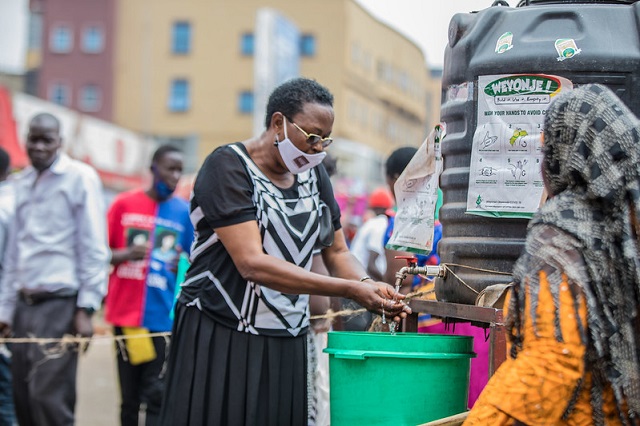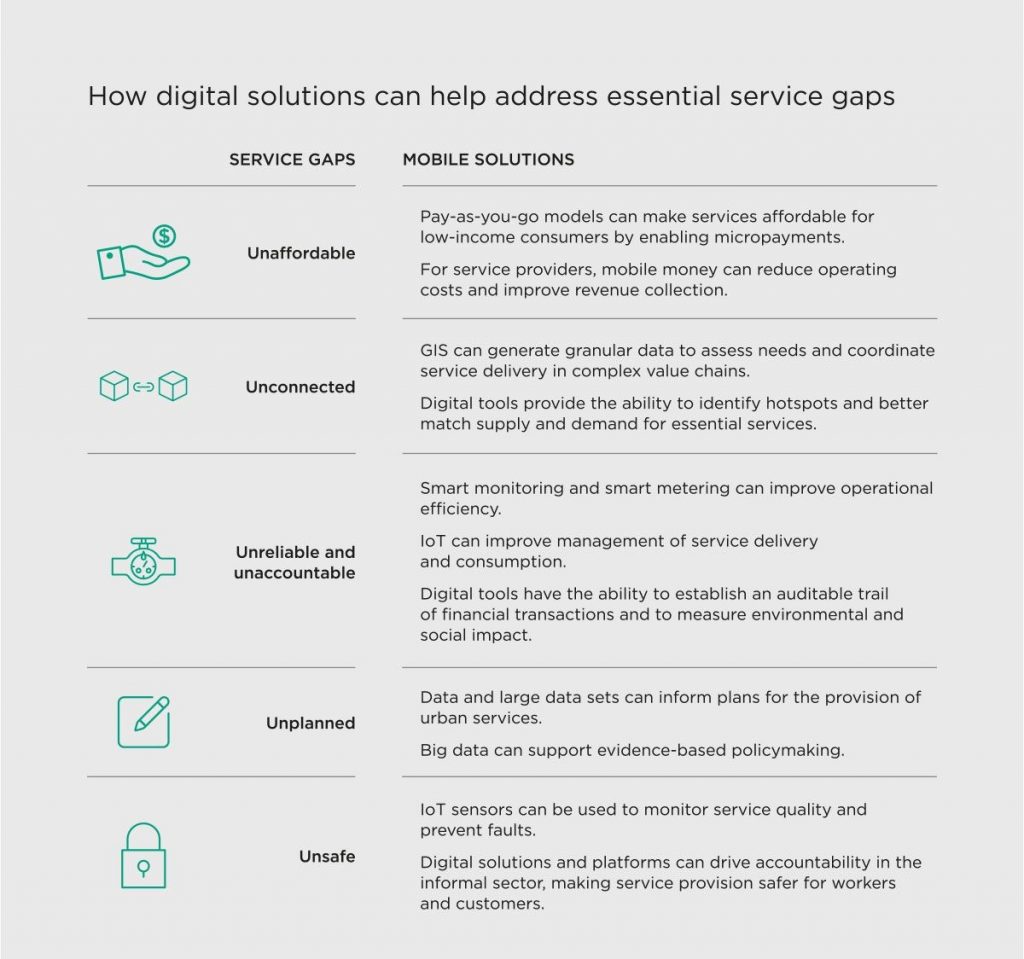
Last month the GSMA announced the launch of the GSMA Innovation Fund for Digital Urban Services funded by the UK Foreign, Commonwealth and Development Office (FCDO). The application deadline for the GSMA Innovation Fund for Digital Urban Services is July 2.
Kampala, the capital and largest city of Uganda, is home to 1.5 million people, of whom only 8% are connected to sewer lines. As a result, residents have to rely on on-site sanitation solutions such as pit latrines, used by 70% of residents. Due to lack of access to safe and reliable emptying services, latrines filled with solid waste are often left untreated, paving the way for cholera and typhoid outbreaks as well as other environmental hazards.
In 2017, to improve sanitation service provision and prevent disease outbreaks, the Kampala Capital City Authority (KCCA) was awarded a grant by the GSMA, an association that represents more than 1,000 companies in the mobile sector, to upgrade, operationalize and expand a pilot GIS tracking system to improve fecal sludge management. The GSMA Digital Utilities program enables access to affordable, reliable, safe and sustainable urban utility services for low-income populations through digital solutions and innovative partnerships. In doing so, we also seek to support cities in low- and middle-income countries in their transition to a low-carbon, climate-resilient future.
The application works as a platform to connect customers to latrine emptying services and ensure the safe disposal of waste. Deploying digital tools has enabled Kampala to navigate a complex sanitation value chain, which requires coordination from pit emptying to transport to treatment and disposal, and to ensure customers are charged consistent prices. KCCA has also collaborated with MTN Uganda to support and encourage the use of mobile money as a tool for pit emptiers to collect and facilitate payments. This can reduce the friction of doing business in cash and may help pit emptiers access financial services like savings and loan products.
Kampala is not the only city struggling to meet the increasing demand for basic services posed by rapid urbanization. City authorities and utilities across low- and middle-income countries are struggling to respond to the needs of rapidly expanding and increasingly unequal cities. The 30 fastest growing cities in the world are all in Africa and Asia, with 90% of urban growth from now until 2050 projected to be concentrated in these two regions. In many places, rapid urbanization is not accompanied by inclusive growth. Rather, it is linked to the growth of informal settlements, which poses unique challenges to city authorities and utility service providers that struggle to meet the needs of low-income populations. As a result, water shortages, unsanitary conditions, unreliable power provision and inadequate waste management could remain a defining reality for many.
The GSMA Innovation Fund for Digital Urban Services was launched to support innovations to build urban resilience through delivering essential urban services to the underserved. The historic rise in mobile connectivity and mobile-enabled innovations globally is paving the way for digital solutions that can make vital services like energy, water, sanitation, plastic and waste management more accessible, affordable, reliable and sustainable. In sub-Saharan Africa and Asia, unique mobile connections now exceed 456 million and 2.8 billion, respectively. The growth of the mobile ecosystem means that digital tools, such as mobile applications, mobile money, GIS, smart metering, big data analytics and Internet of Things (IoT) devices offer unique opportunities to improve coordination and transactions across a range of public, private and civic stakeholders.

By leveraging digital technology and partnering with the mobile industry, cities and innovators can develop novel business models that help bridge the urban services gap. As per the example of GSMA’s past grantee, KCCA, digital innovation coupled with the city authority’s commitment to improve fecal sludge management in low-income contexts led to a decrease in illegal and unsafe dumping of fecal sludge, expanded revenue collection for pit emptiers and resulted in better health outcomes for residents. In fact, GIS mapping data revealed a strong correlation between areas reporting disease outbreaks and low pit emptying activities. In response, KCCA employed the GIS data to organize behavioral change activities and encourage pit emptying services in areas where cholera outbreaks occurred. Going forward, KCCA is also looking to employ this tool to manage waste management services across Kampala.
Digitalization has also enabled water utilities in Africa to improve revenue collection and customer engagement. Wonderkid, a company providing software solutions to 40 water utilities across five countries, supports utilities in several areas: digital payments, billing efficiency and revenue collection, operational oversight, and customer service and information. As GSMA outlined in a recent report on scaling innovations in partnership with water utilities, the company’s clients have since reported improved revenue collection, increased uptake of digital payments by customers and lower complaint resolution times.
In Tanzania, Circle Gas is helping to tackle lack of access to clean cooking. Inhaling charcoal smoke not only has disastrous health consequences, particularly to women and children in informal settlements, but it also contributes to deforestation. Circle Gas is scaling their clean cooking service through pay-as-you-go LPG cooking gas following two grants from the GSMA to KOPAGAS, which developed the technology. It uses an IoT-enabled smart meter and allows customers to pay via mobile money and consume small amounts of gas at a time, while also providing timely and granular usage and payment information. In January 2020, Circle Gas Limited acquired KOPAGAS’s technology in a transaction worth $25 million. The acquisition, thought to be the largest-ever private equity investment in the clean cooking technology sector, gives Circle Gas access to KOPAGAS’s trademarked technology.
Despite the achievements of past GSMA grantees, more testing and evidence of these digital urban services is required. Building on the impact and insights from past work, the GSMA launched the GSMA Innovation Fund for Digital Urban Services in May 2021 to support innovations to build urban resilience through delivering essential urban services to the underserved. The fund will provide grants and additional support to small enterprises that leverage digital technology to deliver urban services with socio-economic and environmental impact in plastic and waste management, energy, water, and sanitation. The fund will support digital innovators who bring the ingenuity, technical expertise and customer-centric focus to work alongside mobile operators, urban services providers and municipalities. Funding will be allocated through grants of £100,000 to £250,000 and projects will run for 15 to 18 months. The application deadline is July 2, 2021 – apply now!
Find out more about the GSMA Innovation Fund for Digital Urban Services, funded by the UK Foreign, Commonwealth and Development Office (FCDO), and supported by the GSMA and its members.
Jisas Lemasagarai is a Senior Market Engagement Manager in The GSMA Digital Utilities programme which supports urban resilience in low- and middle-income countries by enabling access to essential utility services through digital solutions.






